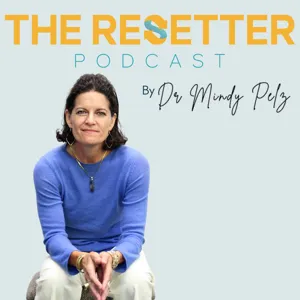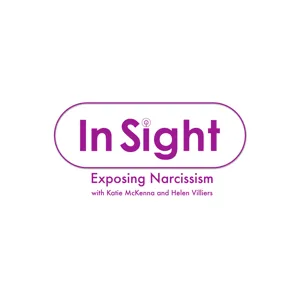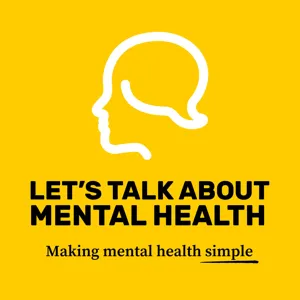Podcast Summary
Hormones and Relationships: Bridging the Gap: Understanding hormonal differences can lead to stronger relationships by promoting respect, communication, and self-awareness
Understanding the role of hormones in our behaviors and relationships can lead to deeper connections and improved communication between individuals. Men and women have biologically different hormones, and these differences can significantly impact how we interact with each other. For instance, men typically require more testosterone to avoid stress, while women need to manage cortisol spikes differently based on their estrogen and testosterone needs. By recognizing and respecting these hormonal differences, we can create stronger relationships, not just in romantic partnerships, but also in friendships and work relationships. This newfound awareness can lead to a better understanding of ourselves and others, ultimately benefiting both parties.
Understanding hormonal cycles for better health and relationships: Recognizing and addressing hormonal imbalances can lead to improved overall health and stronger relationships.
Hormonal cycles play a significant role in our emotional and physical well-being, and understanding the right times for various activities, such as fasting or romance, can lead to better health and happier relationships. Women's hormonal needs change throughout their menstrual cycle, and proper management of stress during hormonal imbalances is crucial. Similarly, men's testosterone and estrogen levels impact their mood and behavior. The best qualities of estrogen, such as love, happiness, and appreciation, occur when estrogen is in the right place at the right time. Conversely, negative emotions associated with low testosterone or high estrogen can hinder well-being. By recognizing and addressing hormonal imbalances, individuals can improve their overall health and strengthen their relationships.
Emotional balance and hormonal health: Balancing emotional needs contributes to hormonal health. Activities that make us happy and relaxed promote estrogen production, while focusing on work triggers testosterone. Maintaining this balance is essential for overall well-being.
Emotional balance is crucial for hormonal health. As humans, we have various emotional needs, and fulfilling them contributes to the production of different hormones. For instance, giving love and care to others stimulates estrogen production, while focusing on making money triggers testosterone production. It's essential to maintain a balance between these two sides of life. Engaging in activities that make us feel happy and relaxed, such as hobbies, helps produce estrogen. However, overindulging in activities like overeating or excessive use of technology can negatively impact our emotional and hormonal balance. By recognizing our emotional needs and addressing them, we can maintain a healthy hormonal balance and overall well-being.
Hormonal Imbalances and Negative Thought Patterns: Hormonal imbalances, particularly in women, can lead to negative thought patterns and addictive behaviors. Estrogen impacts our ability to depend on others and seek help, leading to feelings of isolation. Understanding these hormonal differences can improve mental health.
Hormonal imbalances, particularly in women, can lead to negative thought patterns and addictive behaviors, such as worrying, which can be as addictive as drugs like cocaine. This is due to the activation of the right prefrontal cortex, which is associated with pessimism and problem-seeking. Hormonal imbalances can also impact our ability to depend on others and seek help, leading to feelings of isolation and the need to do things ourselves. Estrogen, in particular, plays a role in this, as it is produced when we feel dependent on others for support. Understanding these hormonal differences and how they impact our behaviors and emotions can help us better understand ourselves and improve our mental health.
Hormones and Behaviors: Men's Competence vs. Women's Support: Understanding hormonal influences can help create environments that support unique needs for healthy relationships and well-being.
Hormones play a significant role in shaping our behaviors and desires, particularly when it comes to men and women. For men, activities that demonstrate competence and stimulate testosterone include wearing specific outfits, engaging in hobbies, and being recognized for expertise. For women, hormonal balance is achieved through feeling heard, seen, and having support. Nurturing activities, such as cooking or caring for children, stimulate estrogen production and are essential for women's well-being. Ultimately, understanding the role of hormones in our lives can help us create environments that support our unique needs and foster healthy relationships.
Hormonal balance in relationships: Understanding hormonal balance is crucial for equal giving and receiving, nurturing, and open communication in relationships. Women's estrogen levels can decrease with unequal giving, while men's testosterone can decrease with excessive porn use or feeling unneeded. Maintaining balance promotes successful relationships.
The balance between estrogen and testosterone in relationships is crucial for both partners. Women have a stronger instinct for reciprocity, meaning they need to feel that they are giving and receiving equally. If a woman feels she is giving more than she is receiving, her estrogen levels can decrease, leading to feelings of unhappiness and dissatisfaction. Conversely, men's testosterone levels can decrease with excessive use of pornography or feeling unneeded in a relationship. Understanding the hormonal aspects of relationships can help save marriages by promoting equal giving and receiving, nurturing, and open communication between partners. Women going through menopause, with declining estrogen levels, need more support and nurturing from their partners to maintain a healthy relationship. Overall, the key to a successful relationship is to maintain a balance between giving and receiving, and to be aware of the impact of hormonal changes on emotional and relational needs.
Optimal hormonal health and relationships: Prioritize self-care, communication, and fulfilling relationships to positively influence hormonal health and improve overall quality of life.
Maintaining optimal hormonal health, particularly testosterone and estrogen levels, is crucial for overall well-being and successful relationships. Stress, lack of control, and poor communication can negatively impact hormonal production. For men, hard work, monogamy, and self-care are important for testosterone production. For women, oxytocin production through non-sexual touch and mutual fulfillment of needs is essential for estrogen production. By prioritizing self-care, communication, and fulfilling relationships, individuals can positively influence their hormonal health and improve their overall quality of life.
Exploring Hormonal Benefits for Men and Women: Both genders can enhance hormonal health through methods like intermittent fasting, maintaining a balanced sex life, and exploring alternative practices for women during menopause.
Both men and women can experience hormonal benefits through various methods, including intermittent fasting and maintaining a healthy balance of sex and hormones. For men, fasting for 24 hours can increase testosterone levels by up to 2,000%, while for women, the anticipation of sex during ovulation is a significant estrogen producer. Intermittent fasting, having a balanced sex life, and learning to have orgasms without ejaculating are some ways to optimize hormonal health for men. Women, on the other hand, can explore alternative methods like silence and darkness retreats to enhance their senses and maintain sexual desire during menopause. Overall, understanding the intricacies of hormonal health and implementing practical strategies can lead to improved well-being and happiness.
Impact of Sexual Activity on Testosterone Levels: Regular sexual activity, particularly for men, can boost testosterone levels. Men who ejaculate weekly and then abstain for six days have a 50% increase on the seventh day.
Regular sexual activity, particularly for men, can significantly impact testosterone levels. According to the discussion, men who ejaculate once a week and then abstain for six days have a 50% increase in testosterone on the seventh day. This consistent pattern holds true for men in long-term relationships as well. Women's sexual practices and hormonal responses were not discussed extensively in the conversation. However, it was mentioned that the estrogen produced during sexual encounters with loved ones can help regulate dopamine and testosterone levels. Additionally, the production of prolactin in men during sex with a loved one can inhibit their desire for sex for several days. Overall, the conversation emphasized the importance of physical intimacy and emotional connection in a relationship for maintaining optimal hormonal balance.
Emotional vulnerability and connection impact women's hormonal health and sexual arousal: Expressing emotions and feeling safe and loved can raise estrogen levels, while criticism and blame can lower them. Men's testosterone can be affected by women's emotional expression, with validation being key to maintaining healthy hormonal levels for both partners.
Emotional vulnerability and connection are crucial for women's hormonal health and sexual arousal in a healthy relationship. Women have the unique ability to be sexually aroused at any time if they feel safe and loved, and this is linked to the production of estrogen. Being naked in mind and heart to a loved one can help raise estrogen levels, while blame and criticism can lower them. Men's testosterone levels can also be affected by how women express their emotions, with validation being key to maintaining healthy hormonal levels for both partners. By listening and asking questions instead of jumping to solutions or defending oneself, men can help keep their partner's estrogen up, while women can help keep men's testosterone up through romantic gestures and emotional safety.
Hormonal differences in men and women impact relationships: Understanding hormonal differences can lead to deeper, more fulfilling relationships. Men's testosterone can lead to withdrawal, while women's estrogen impacts attachment and desire. Regular connection and sex help maintain security and intimacy.
Understanding and addressing the hormonal differences between men and women can significantly improve romantic relationships. Men's testosterone levels can increase when they withdraw, leading women to feel a loss of emotional connection. On the other hand, women's libidos are historically higher than men's, and their estrogen levels can impact their emotional attachment and desire for intimacy. Regular, meaningful connection outside the bedroom is crucial for maintaining a healthy relationship, and having sex at least once a week can help recondition the body to feel safe and secure in the partnership. Additionally, women in high-powered careers engaging in testosterone-driven activities during the day may require more nurturing and emotional support from their male partners. Overall, recognizing and addressing these hormonal differences can lead to deeper, more fulfilling romantic relationships.
Taking personal responsibility for hormone health: Women can boost estrogen levels by engaging in joyful activities, avoiding victim mindset, and prioritizing self-care.
Personal responsibility plays a crucial role in maintaining healthy hormone levels, particularly estrogen, for women. Men can support this process through emotional connection and communication, but women must first take steps to raise their estrogen levels on their own. This can be achieved through activities that bring joy and reduce stress, such as talking about emotions with a validating listener, learning new things, or engaging in self-care. Avoiding a victim mindset and focusing on hope also contributes to higher estrogen levels. Remember, men are not dessert, but rather partners who can help support emotional health when women are able to prioritize their own needs and responsibilities.
Personally expressive activities boost estrogen production for emotional well-being: Expressive activities like dance, singing, or therapy can increase estrogen levels, promoting emotional intelligence and resilience. Emotions themselves are powerful estrogen producers, and recognizing and managing emotions effectively can lead to greater emotional health.
Engaging in personally expressive activities, such as dance classes, singing, or wearing makeup, can help women produce estrogen, which is essential for their emotional well-being. Therapy, as a form of emotional expression, can be particularly effective in producing estrogen and promoting emotional intelligence. However, it's important to note that not all therapy is created equal, and some may not lead to significant change. This is because the first few sessions are often used for building a rapport between the therapist and the client, and providing validation for their emotions rather than immediate solutions. Emotions themselves, including happiness, love, and anger, are powerful estrogen producers. Practicing emotional intelligence, which involves recognizing and managing emotions effectively, can help individuals navigate the complex emotional landscape and lead to greater emotional resilience. The Venus talk, a communication technique for expressing emotions and feelings, can be a useful tool for building emotional connection and reducing stress. By acknowledging and validating emotions, rather than trying to fix or solve problems, individuals can feel heard and understood, leading to increased estrogen production and emotional well-being.
Understanding the role of embarrassment in emotional intelligence: Recognize and process negative emotions like embarrassment to change mindset, approach problems optimistically, and improve relationships
Emotional intelligence plays a crucial role in managing emotions and maintaining healthy relationships. Embarrassment, as a powerful positive emotion, is an essential part of emotional intelligence. Expressing emotions and being validated is important for women, while men may need to learn to listen and provide space for emotional expression. To effectively manage emotions, it's essential to first acknowledge and process negative emotions before moving on to positive ones. The prefrontal cortex, the human part of our brain, is designed to help us do this. By recognizing and addressing negative emotions, we can change our mindset and approach problems from a more optimistic perspective. This not only helps us feel better but also allows us to effectively solve problems and improve our relationships.
Balancing Estrogen and Progesterone Production: Engage in collaborative activities for progesterone, limit external support for estrogen, focus on relationships and gratitude for hormonal balance
Finding balance between estrogen and progesterone production is essential for overall health and well-being. Progesterone, a favorite hormone, is produced when engaging in fulfilling, collaborative activities with others, such as reading and discussing books or having meaningful conversations. Conversely, estrogen is produced during activities where one depends on external support or experiences pressure. Social rituals and natural activities are crucial for progesterone production and can help reduce the negative effects of electronics and social media addictions. Men and women both need emotional support to thrive, and validating each other's emotions can lead to increased testosterone production. To maintain optimal hormonal balance, focus on creating supportive relationships, engaging in fulfilling activities, and practicing gratitude.
Balance hormones and strengthen relationships through acts of love: Acts of love can help balance hormones, specifically estrogen production, and strengthen relationships. Try the 'Genie in a Bottle' game to ask for help with small tasks and receive emotional support.
Fasting and maintaining hormonal balance, particularly for women, is crucial in today's world filled with hormone disruptors. Estrogen and testosterone levels need to be in the right balance, and emotional fulfillment and acts of love play a significant role in estrogen production. Women can ask for help and receive emotional support from their partners, and even small acts of love can have a big impact on hormonal levels. The "Genie in a Bottle" game, where women ask their partners for help with small tasks, can be an effective way to balance hormones and strengthen relationships. This simple yet powerful interaction can lead to increased estrogen production and overall well-being.
Balancing Hormones for Relationship Success: Massaging feet with lavender essential oil, clear communication, letting go of validation need, and self-sufficiency can lead to happier, more connected relationships by balancing hormones
Creating a balance of estrogen and testosterone in relationships can lead to increased happiness and connection between partners. Massaging your significant other's feet with essential oils, like lavender, can be an effective way to produce estrogen and strengthen the bond between you both. It's essential to communicate your needs clearly and allow your partner to help you, rather than trying to do everything yourself. Additionally, letting go of the need for constant validation from your partner and finding ways to produce estrogen independently can lead to greater self-sufficiency and overall relationship satisfaction. The recognition of hormonal influences on behavior and emotions is crucial in understanding the dynamics of healthy relationships.






